This now-deleted tweet is from an epidemiologist with a large following (including policymakers and journalists), a blue verification-checkmark on Twitter, and a profile including the title of "Dr" accompanied by a photo in a lab coat.
🧵1/13
🧵1/13

Looking further, I cannot find a historical record of a personal website nor Twitter account prior to 2020. The title of Doctor is derived from a PhD that does not appear to be specified online.
2/13
2/13
In the footer of this person's website:
"The author is an epidemiologist, not a physician, and the contents of this website should not be used to prevent, diagnose, or treat any disease. Always consult your personal physician for medical advice."
3/13
"The author is an epidemiologist, not a physician, and the contents of this website should not be used to prevent, diagnose, or treat any disease. Always consult your personal physician for medical advice."
3/13
This person often champions extraordinary governmental health powers, regardless of whether those interventions violate the basic principles of medical ethics (or the freedoms that are guaranteed under a constitutional, representative government).
4/13
4/13
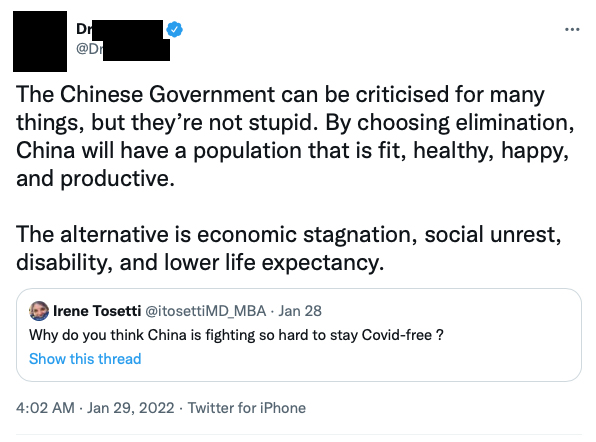
I am not questioning this person's credentials nor denying anyone's right to expression. However, I wish to discuss influence/reach.
Tweets from this epidemiologist have received, by reasonable estimation, *hundreds of millions* of impressions, across a worldwide audience.
5/13
Tweets from this epidemiologist have received, by reasonable estimation, *hundreds of millions* of impressions, across a worldwide audience.
5/13
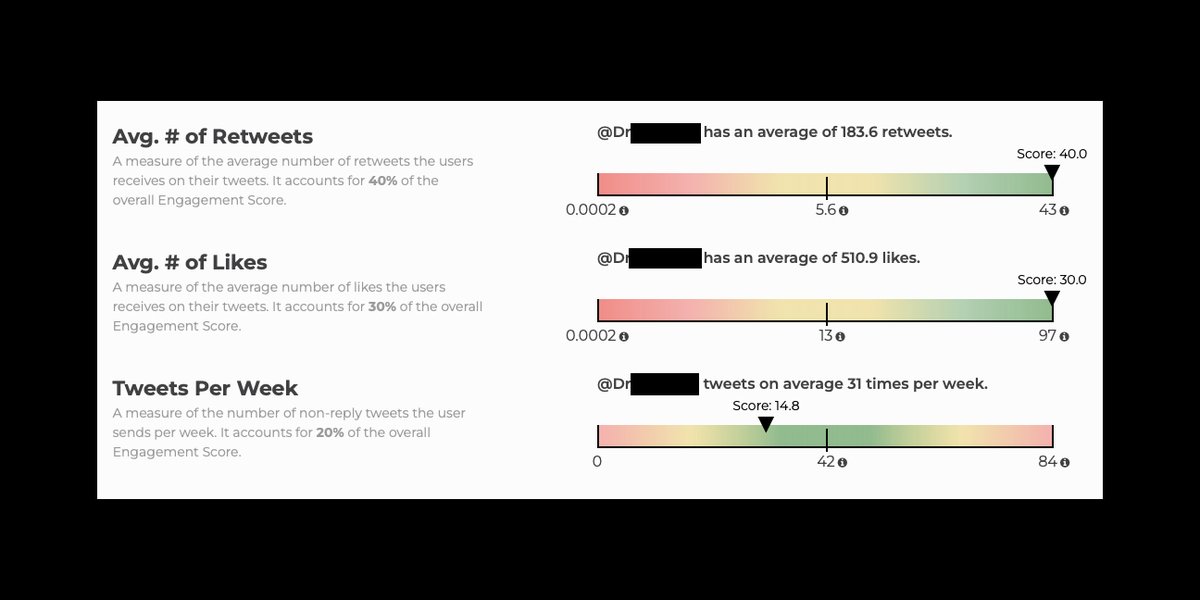
In Sept. 2020, this person shared questionable data.
A concerned parent responded with his fears.
Dr. Alasdair Munro, a pediatric emergency medicine clinician and infectious diseases researcher (also a member of The Lancet COVID-19 Commission), sought to ease that fear.
6/13
A concerned parent responded with his fears.
Dr. Alasdair Munro, a pediatric emergency medicine clinician and infectious diseases researcher (also a member of The Lancet COVID-19 Commission), sought to ease that fear.
6/13
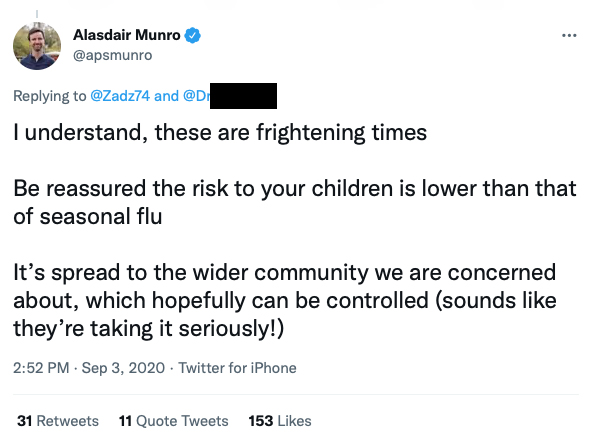
Dr. Munro's response to the scared father was called "supremely unhelpful" by Apoorva Mandavilli, a science writer at The New York Times (who, notably, overstated U.S. pediatric COVID-19 hospitalizations by more than 1,000%, requiring a massive correction in Fall 2021).
7/13

7/13
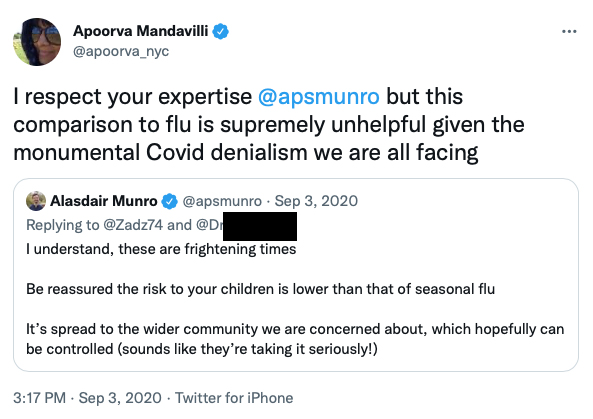
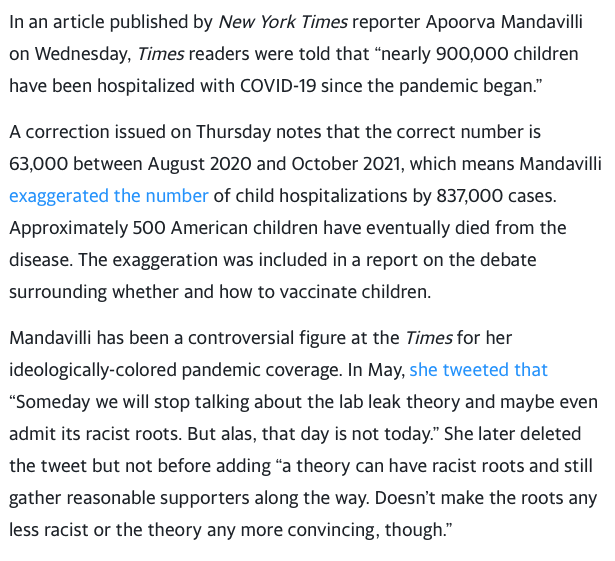
Dr. Munro, who has the most expertise regarding the topic at hand, has a smaller Twitter following than the epidemiologist and the journalist, he does not include professional designations beside his name, and he does not appear in a lab coat in his profile photo.
8/13



8/13
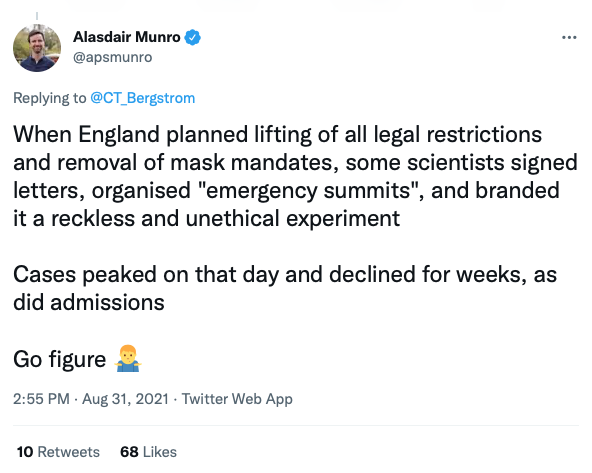
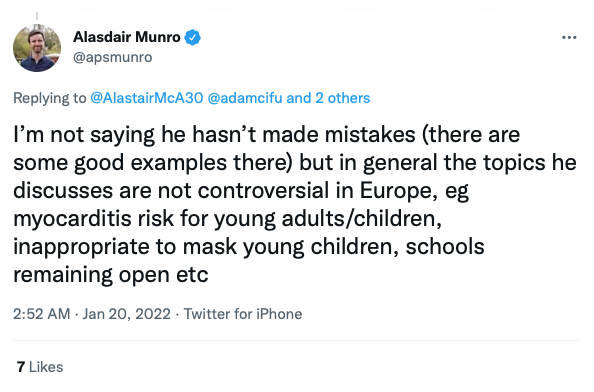
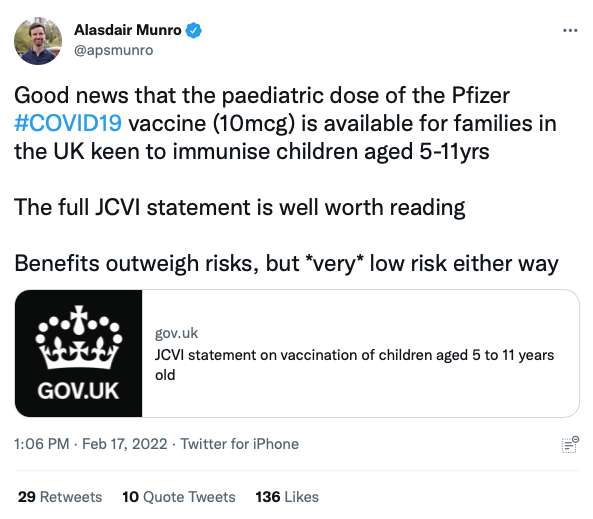
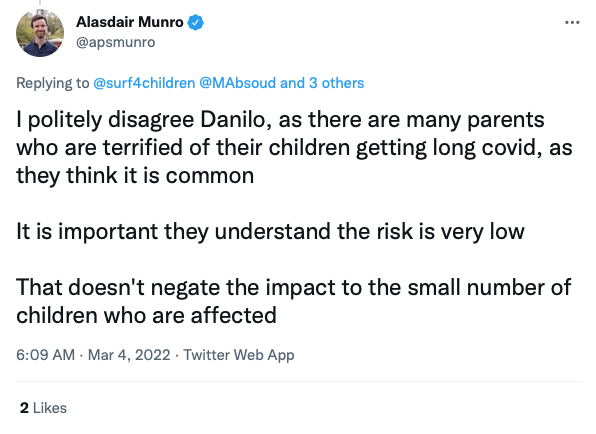
Meanwhile, I continue to find influential persons, cited by journalists and policymakers as experts, who use titles like epidemiologist, biostatistician, or public health scientist (as well as "Dr.," in place of disclosing or specifying a specific PhD, e.g. Literature).
9/13
9/13
It is possible to earn a Master of Public Health degree and the title "Public Health Scientist" from a recognizable New England School of Public Health after months (not years), of remote-learning.
No background in science or medicine is necessary.
10/13
No background in science or medicine is necessary.
10/13
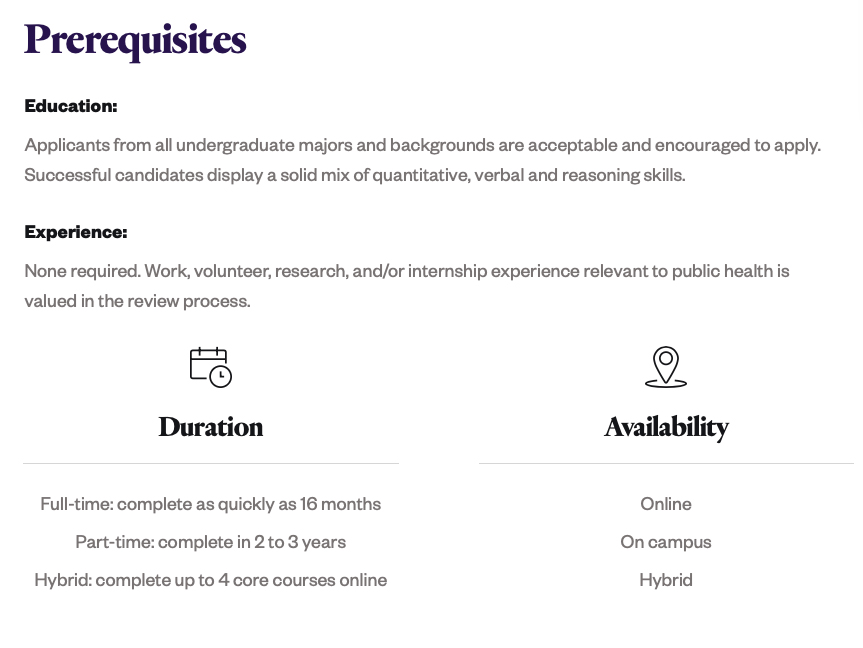
In my opinion, many professional depictions grossly misrepresent work experience and educational history as it relates to the COVID-19 pandemic (especially in the field of pediatric health), and subsequently, lack necessary disclosures.
11/13
11/13
Additionally, I continue to fear that public policy as well as public opinion is being shaped by attention-seeking hyperbole uttered by those who have tenuous connections to science and medicine (and often, a total disregard for nuance, ethics and holistic health).
12/13
12/13
In my opinion, it is journalists who have the best platform and incentive to set the record straight.
13/13
https://twitter.com/johndefeo/status/1494000664078344206
13/13
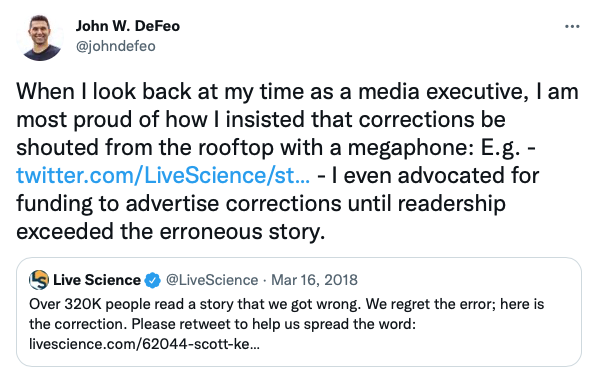
• • •
Missing some Tweet in this thread? You can try to
force a refresh











